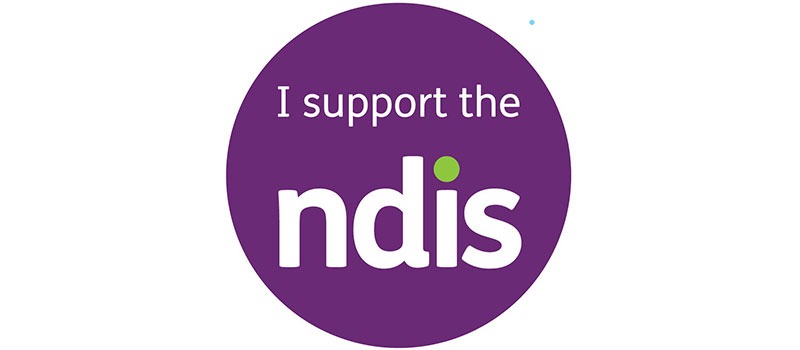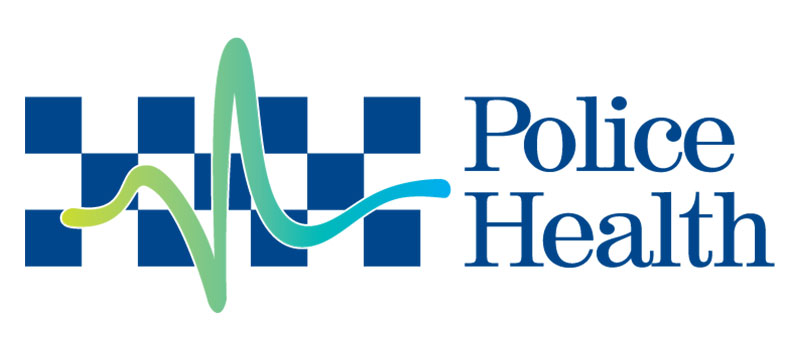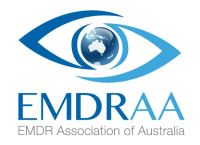How may we help you today?
Transitions Therapy is a safe space where we can work through the issues that are causing you distress or unease in your life. We care about your emotional and mental well-being. We are professionally trained to help you achieve your goals through evidence-based therapies to suit you and your needs.
Our range of service areas and specialties are grouped as Individual Counseling, and Relationship Counseling.
Individual Counseling
Transitions Therapy provides effective counseling and therapy for people experiencing a wide variety of mental health challenges that may be preventing them from fulfilling their goals and living meaningful and enriching life.
We offer a judgement-free, safe space to help our clients navigate these challenges. Typical issues experienced by our clients include depression, stress, low self-esteem, anxiety, anger, and grief. Read on for descriptions and common ways that each may manifest itself in your life.
Trauma
Trauma is a very broad term used to encompass a wide range of experiences. These situations can range from serious assault, sexual violence, road accidents, life-threatening events or chronic abuse and neglect.
Not all experiences of trauma require therapy, many people recover without any clinical intervention. However, for those people who do experience the effects of trauma, treatment can be very effective.
Deb is trained in both Trauma-focused Cognitive Behaviour Therapy (TF-CBT) and Eye Movement Desensitisation and Reprocessing (EMDR). EMDR therapy has been shown to be effective for over 30 years in the treatment of trauma and has been shown to be an effective treatment component in managing many other conditions.
The symptoms of trauma are very like those that many people experience with other mental health conditions. The most important thing to consider is that what a person experiences is individual and often has a significant impact on their ability to function and to enjoy their life.
Depression
Depression affects how you feel, think and behave. It is underpinned by a persistent feeling of sadness and loss of interest and can lead to a range of emotional and physical problems. It affects even ‘everyday’ tasks and can lead to feelings that life isn’t worth living.
Depression is stronger than feeling blue and typically lasts for more than two weeks. While you can’t will yourself to snap out of it, many can feel better with medication and/or psychological counseling.
Common symptoms of Depression include:
- Low mood
- Loss of interest in activities
- Decreased motivation
- Changes in appetite and associated weight loss or gain
- Changes in sleep – sleeping too little, or too much
- Fatigue for no real reason
- Difficulties concentrating and making decisions
- Recurrent thoughts of death, thinking or planning suicide, suicide attempts
- Reduced libido
- Ruminating thoughts
- Worrying
- Negative thinking
- Withdrawing from social groups
- Feeling easily agitated
- Feelings of hopelessness, or feeling ‘trapped’
- Feeling overwhelmed
Stress
Events and the demands of life can cause us stress. In this way, it is a normal psychological and physical reaction that is there to protect us. The brain perceives a threat and signals for your body to release a number of hormones to trigger your ‘fight-or-flight’ response.
Our bodies should return to a normal and relaxed state. However, the demands of modern life make it hard to relax our threat signals and stress hormones. This is where stress management is an important skill to master and avoid the serious long-term health problems
Common symptoms of Stress can include:
- Feeling angry or irritable
- Feeling anxious or worried
- Feeling nervous
- Experiencing mood swings
- Feelings of hopelessness
- Feelings of worthlessness
- Ruminating thoughts
- Difficulties concentrating
- Low motivation levels
- Low self-esteem
- Ulcers
- Hypertension
- Increased heart rate
- Headaches or migraines
- Disrupted eating patterns
- Muscle pains or aches (headache, backache)
- Diarrhoea
- Stomach pain
- Withdrawal from social activities
- Feeling overwhelmed or overloaded
- Feeling wound up or tense
- Avoidance of activities or obligations
Self-Esteem
Our self-esteem is our overall opinion of ourselves, and how we feel about our abilities and limitations. A healthy level of self-esteem means we respect ourselves and feel that we deserve the respect of others. Low self-esteem means pervasive worrying that we aren’t good enough, and we put little value on our opinions and ideas.
We all feel bad about ourselves from time to time. Pervasive, or ongoing, low self-esteem means we go through life needlessly feeling bad about ourselves. This affects our relationships, goals, and enjoyment.
Common symptoms of poor Self-Esteem include:
- Depression
- iscouragement
- Fear and anxiety (of making a mistake, being rejected, looking foolish or inadequate)
- Hypersensitivity
- Mixed emotions
- Shutdown emotionally
- Being Needy
- Chaotic Relationships
- Defensiveness
- Eating disorders
- Hypervigilance
- Lack of assertiveness, passivity, aggressive, or passive-aggressive behaviour
- Perfectionism
- Poor boundaries
- Poor communication
- Poor relationships and social skills
- Promiscuousness
- Self-sabotaging
- Sexual dysfunction
- Wearing a figurative mask
Anxiety & Panic Attacks
Occasional anxiety is an ordinary part of life. Someone is said to have an anxiety disorder if they frequently experience an intense, excessive, and persistent worry or fear about everyday situations. A panic attack is such an episode that escalates into an intense feeling of fear or panic within several minutes.
These feelings of anxiety and panic can cause us to avoid places or situations that we associate with these feelings. These feelings can interfere with daily activities, are difficult to control, and are out of proportion to what is triggering them.
Common symptoms of Anxiety includes:
- Feeling dizzy or faint
- Difficulty breathing, short and shallow breaths
- Feelings of impending doom
- Hot or cold sweats
- Uncontrollable trembling
- Feeling dizzy or faint
- Difficulty breathing, short and shallow breaths
- Dry mouth
- Tunnel vision
- Feelings of impending doom
- Hot or cold sweats
- Uncontrollable trembling
Anger
Anger is not an emotion to be stopped or ‘bottled up’. It is a normal, healthy emotion when you know how to express it appropriately. Anger management is about learning how to do this, by recognizing the signs that we are becoming angry, taking action to calm down, and dealing with the situation in a positive way.
Common symptoms of Anger can include:
- Increased heart rate (heart pounding)
- Increase of stress hormones
- Become hot or sweaty
- Feeling out of control
- Flushed face
- Tightness in chest
- Gritting your teeth
- Increased volume of speech (includes yelling)
- Increased rate of speech
- Throwing things
- Withdrawing and doing nothing
- Storming out of the room or away from the situation
- Criticizing others
- Ignoring others
- Physical violence
Grief & Bereavement
Grief is usually associated with losing a loved one. It is a natural response to losing a person, place, or object to that we have developed a significant attachment to. We can feel grief and loss with the end of a relationship, a life, or even employment.
Grief can be an overwhelming feeling and one that we feel longer after our loss has occurred. Gradually these feelings ease, and it’s possible to accept our loss and move on. For some, feelings of loss are debilitating and don’t improve with time. If you’re unable to accept the reality of your loss, allow yourself to experience the pain of that loss, and then adjust to that new reality, you may consider counseling.
Common ways that grief can present include:
- Sadness
- Confusion
- Helplessness
- Shock and disbelief
- Denial
- Anger
- Feelings of guilt
- Fear
- Changes to sleeping patterns
- Difficulties concentrating
- Preoccupied thoughts about the loss
- Anxiety about the future
Relationship Counseling
Everyone experiences difficult relationships at some point in their life. Unfortunately, sometimes those difficulties can have a direct impact on an individual’s enjoyment of life, their mental health and their stress levels.
There are many reasons that relationships get stuck, monotonous, argumentative or lacking in connection and can include:
- Substance use
- Infidelity
- Blended family dynamics
- Addictions
- Finances
- Parenting styles
- Family of origin issues
Whether the relationship difficulty you are experiencing involves:
- Your partner
- A family member
- A friend
- Work colleagues
Deb has the experience and training to help you to navigate these difficult times. Her approach is caring, empathic and non-judgemental. Deb will work with you to find solutions that support improved mental and physical health, strengthened family bonds and a brighter outlook. Utilising a solution -focused approach, relationship counselling enables you to build better relationships through
- better understanding of yourself
- learning effective communication skills
- developing assertiveness
- understanding and developing boundaries and ‘rules of engagement’
“ I work with clients to provide an emotionally safe space to explore their relationships and develop skills to heal wounds”
If this sounds like you and you’d like to know how Deb can help you to improve your relationships, please get in touch or book an appointment
NDIS – Therapeutic Supports: Counselling
Are you looking for counselling for yourself or someone you care for? Deb Hediger of Transitions Therapy is a Credentialed Mental Health Nurse and a Registered Counsellor. Deb has worked in the health environment for many years and understands how the difficulties of living with a disability can impact your mental health.
Deb is a Registered NDIS Provider, meaning that she can provide counselling to participants with any of the three forms of funding:
Self-Managed:
The NDIA provides you with funding so you can access the supports that will best help you pursue your goals.
Plan Managed Funding:
The NDIA will provide funding in your plan to pay for a Plan Manager who pays your providers for you, helps you keep track of funds and takes care of financial reporting for you
NDIA Managed Funding:
The NDIA pays your providers on your behalf
Counseling can be provided face to face or via video Telehealth. Sessions are usually one hour long and meet the NDIS pricing agreement for Queensland.
NDIS Pricing Arrangements and Price Limits 2022-23 page 93.
Please contact Deb at Transitions Therapy if you would like more information, or to discuss a service agreement.
Each individual can experience these issues differently; including combinations of the above or like symptoms, and others that are not listed. If you think you might be suffering from any of these issues we offer a range of evidence-based strategies and approaches to assist. Please contact us to arrange to meet with our credentialed counsellors and therapists. Flexible times and 1-on-1 sessions are available.









